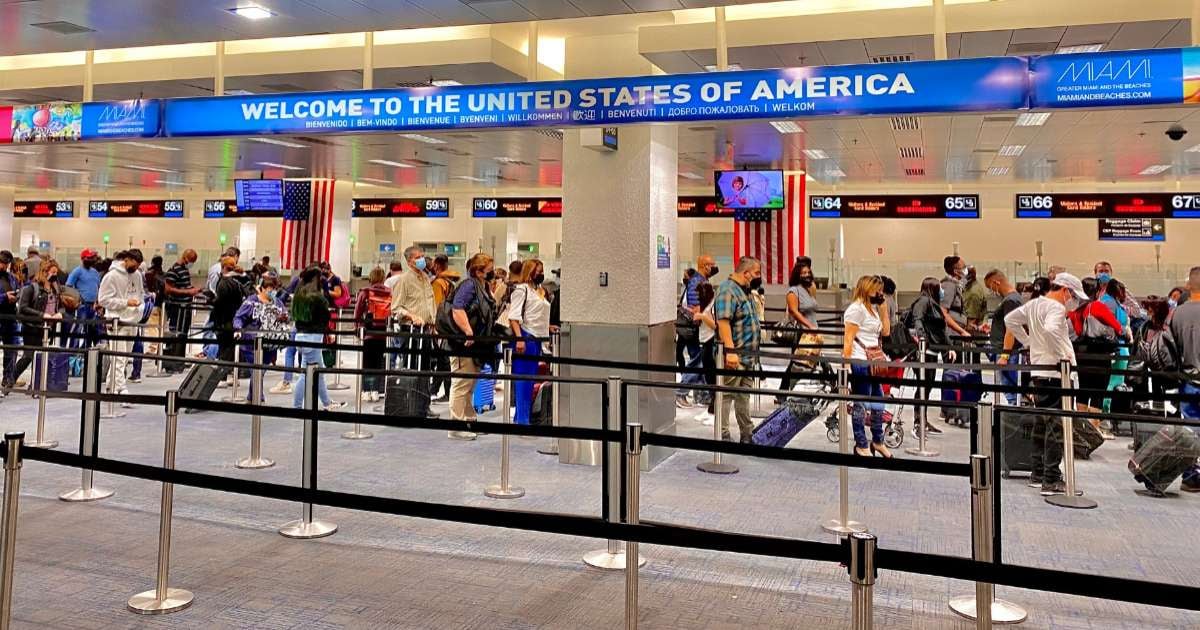The latest immigration restrictions imposed by President Donald Trump have sent shockwaves through the Cuban community in the United States. Many still dream of reuniting with family or escaping the grip of authoritarianism and scarcity. Reactions are split; while some justify the measures as necessary for national security, others view them as a barrier to long-held hopes.
As of Monday, June 9, Cuban citizens attempting to enter the U.S. with temporary visas, such as for visiting or studying, or those in the process of residency, will face greater hurdles. The Trump administration has added Cuba to the list of countries with partial travel restrictions, citing inadequate cooperation with U.S. authorities and labeling it a "state sponsor of terrorism."
Debate Among Cubans in the U.S.
In Kentucky, home to over 60,000 Cubans, these measures have sparked heated debate. Darién Berríos, who left Cuba in 2007, supports Trump's decision. "We need to address this because Cuba has sent many people over the years to serve the regime from the U.S.," he told WAVE News. "We must first care for our home, then for others."
María Teresa Rodríguez, a Cuban refugee since 2009, also supports Cuba's inclusion on the list. "Cuba cooperates with no one unless it benefits its government. They are enemies of humanity for what they do to their people," she stated. Both agree that the measures are not out of disdain for fellow Cubans but are deemed "necessary" to protect their host country. "I have nothing against my people," Berríos assured, "but this is about security."
Diverse Opinions and Legal Concerns
In Miami, Luis Barrero offered a more nuanced view. "A Venezuelan or Cuban shouldn't be visiting the U.S. when there’s such a huge dictatorship in their country. They should focus more on the dictatorship than on sightseeing," he told BBC Mundo. However, he made a distinction for asylum seekers. "If it's political asylum, that's different. I disagree with restricting that."
Not everyone agrees with the new policies. Alberto, another Cuban in Miami, views the news as a harsh blow to those in Cuba still dreaming of legal emigration. "That’s President Trump's policy, and it must be respected, right? Well, this news is important for Cubans on the island. Imagine, it's like a cold splash of water," he commented to BBC Mundo.
Julián Padrón, also from Miami, was clear in his opposition. "I am Cuban and I believe this is a free country and a country of immigrants, but they shouldn’t impose such restrictions."
Immigration attorney Duffy Trager criticized the restrictions, warning of their human impact. "There are people who have waited decades for a legal opportunity to enter. Now, even with a valid visa, they simply can't come. This could extend for another three and a half years or more," he lamented.
Impact on Cuban Visa Applicants
According to data cited in the presidential proclamation, Cuba had an illegal stay rate of 7.69% for tourist visas and 18.75% for student visas. However, Trager argues that the measure unfairly punishes many who do comply with the rules, negating years of sacrifice.
The new rules include exceptions, such as for spouses and children under 21 of U.S. citizens, as well as certain special cases like athletes competing in international events. Yet, for most Cuban applicants, the outlook has become far more uncertain.
Ultimately, Trump's proclamation has exposed a painful divide within the Cuban diaspora. On one side are those who, having reached the U.S., advocate for stricter measures; on the other, those still seeking an opportunity, now caught between two countries closing their doors.
Amid this tension, what remains clear is that the Cuban exile community continues to be marked by trauma, fear, and a fight for survival. For some, the priority is to protect their new home; for others, it's remembering that they too once knocked on the door seeking refuge.
Key Questions About U.S. Immigration Policies and Cuban Impact
What are the new immigration restrictions for Cubans under Trump's policy?
The new restrictions require Cuban citizens seeking temporary visas or residency to overcome more stringent obstacles, as Cuba is listed as a state sponsor of terrorism and non-cooperative with U.S. authorities.
How has the Cuban community in the U.S. reacted to these restrictions?
Reactions are mixed; some support the measures for national security reasons, while others see them as a barrier to reuniting with family and pursuing new opportunities.
What exceptions exist within the new immigration rules for Cubans?
Exceptions include spouses and children under 21 of U.S. citizens and certain special cases like international athletes, but the situation remains challenging for most Cuban applicants.
